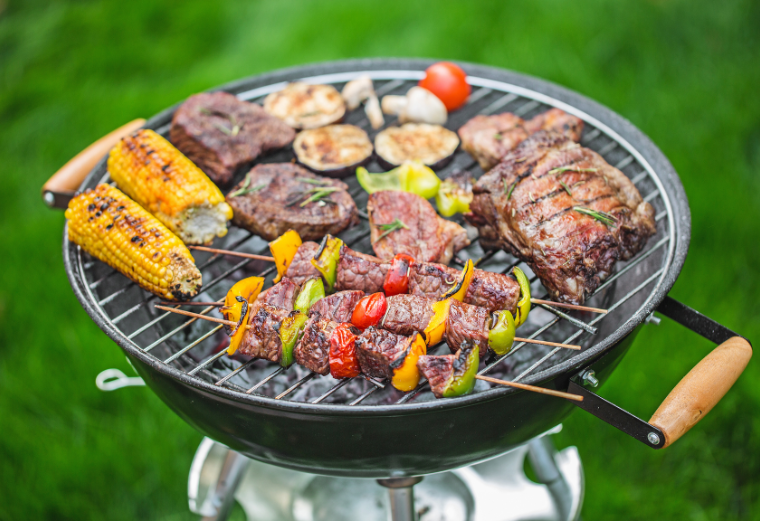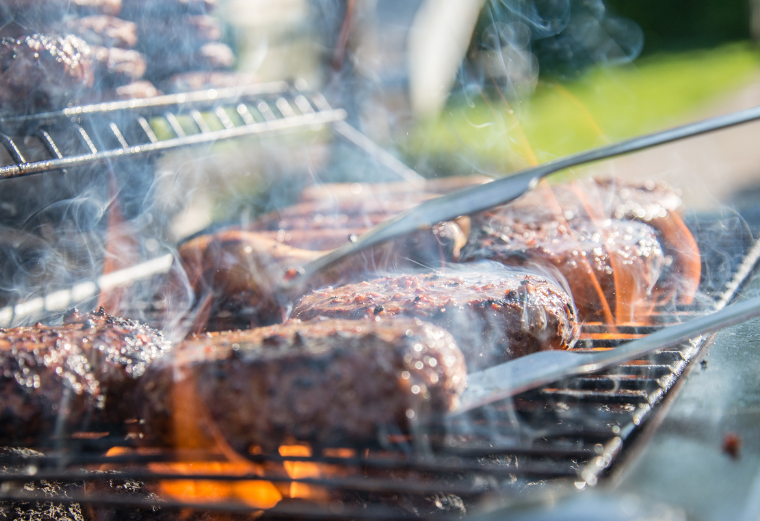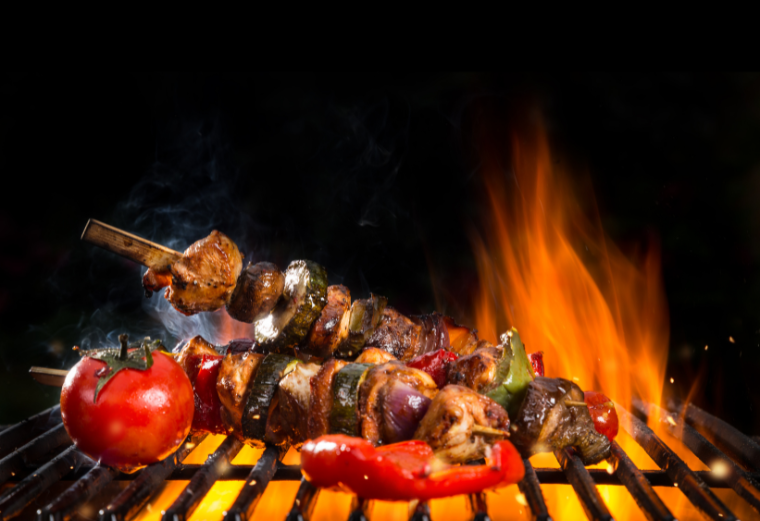When it comes to the art of barbecuing, memory typically calls to mind the sizzle of a perfectly marbled steak, the aroma of sputtering sausages, and the jovial atmosphere that always seems to accompany the smoke of an even burning grill. For many, this is where the romance of grilling begins and ends—a timeless tradition that centers around good food, good company, a beer or two, and the natural delights of open-flame cooking. It’s simple, primitive, and ohhh so delicious! However, the rising consciousness about sustainability is reshaping every aspect of our lives, including outdoor cooking. Enter wood pellet grills—the quiet contender in the grand barbecue story that marries tradition with technological and environmental feats.
In this comprehensive guide, we dig into the heart of the wood pellet grill movement, exploring how these grills are not only revolutionizing the taste of our beloved BBQ but also carving a path toward a more sustainable future.
Benefits of Wood Pellet Grills
Superior Flavor and Versatility
Wood pellet grills are lauded for producing a rich and complex smoke flavor that traditionalists argue gas and charcoal grills can’t quite replicate. The flavor profile is influenced by the type of wood pellets used, which can range from hickory and mesquite to cherry and apple, offering a palette of options to grill masters.

Moreover, these grills can function as smokers and bake ovens, allowing for a wide array of culinary adventures. Picture grilling a steak, smoking salmon, or even baking a pizza, all with the same device, and without the need for separate equipment that clutters your outdoor kitchen.
Consistent Temperature Control
The hallmark of wood pellet grills is their ability to maintain an even temperature over long periods, offering a level of control that surpasses most traditional grills. This steady heat is a game-changer for aficionados aiming for that perfect brisket, who know that any fluctuation in temperature can drastically affect the outcome.
The advanced technology within these grills ensures that the combustion of pellets is regulated to keep the heat just right. With features like digital temperature controllers, grillers can set their desired temperature like an oven and let the grill do the rest, no constant monitoring needed.
Efficient and Eco-Friendly Combustion

While wood pellets do produce ash as a byproduct of combustion, the amount is relatively low compared to burning wood logs. This means less ash disposal and easier maintenance. This minimal waste means less mess to clean up after a grilling session and less impact on air quality. Additionally, wood pellet grills are designed to enable a more efficient combustion process, which translates to a reduction in the consumption of fuel and enhanced energy retention.
RELATED: Easy-Peasy Home Energy Conservation
Part of what makes wood pellets so eco-friendly is the renewal properties of the materials they are made from. Hardwood sawdust and agricultural crop waste are the primary ingredients, often considered sustainable as their sources are continually re-harvested. This is a stark contrast to charcoal production, which can contribute to deforestation and habitat loss if not sourced responsibly.
Environmental Impact of Wood Pellet Grilling
The environmental advantages of wood pellet grilling go further than just efficient fuel consumption. When compared to traditional grilling methods, wood pellet grills significantly reduce carbon emissions. This means that every time you fire up your grill with pellets, you’re not only treating your taste buds to an array of flavors but also making a conscious choice for the environment.
Adopting wood pellet grills can also play a part in reforestation efforts by encouraging the growth and harvesting of woods like oak and maple specifically for fuel pellets. This differs from the use of wood chips and chunks, traditionally seen as byproducts in lumber operations or larger logs that require cutting down mature trees.
How Wood Pellets Work
At the heart of every wood pellet grill is the pellet. These are compressed sawdust cylinders that are typically about the size of rabbit food. They’re loaded into a hopper, where they are gradually fed into the fire pot. Once in the fire pot, a hot rod ignites the pellets, and a combustion fan stokes the flame, while a convection fan circulates the heat for even cooking.
The beauty of this system is its simplicity. The grill-master only needs to set the desired temperature, and the grill takes care of the rest. This smart technology has automated the process of maintaining a fire, making it accessible to those who might shy away from the sometimes fiddly nature of traditional grills.
Wood Pellet Grill Brands and Models
Overview of Popular Brands

Dive into the world of wood pellet grills, and you’ll find a market brimming with options. Brands like Traeger, Camp Chef, and Pit Boss have become synonymous with innovation and quality in this space. Traeger, the OG of wood pellet grills, paved the way for the industry with its patented technology. Camp Chef, on the other hand, offers a diverse range of outdoor cooking equipment designed for adventurers and backyards alike, while Pit Boss aims to provide robust grills at an affordable price point.
Comparison of Models
Each brand brings its flair to the wood pellet grill market. Traeger grills are known for their set-and-forget simplicity and have one of the most extensive lineups of models. Camp Chef boasts the largest hoppers and initial heat-up times and is often praised for its portability with camp-friendly models. Pit Boss, known for its ‘bigger, hotter, heavier’ grills, doesn’t shy away from including innovative features like connective Bluetooth capabilities, all at a competitive price.
Understanding the features and pricing of different grill models can guide your purchase based on your specific grilling needs, the frequency of use, and your environmental considerations.
Tips for Using Wood Pellet Grills
Proper Maintenance and Cleaning
Regular cleaning and maintenance are key aspects of prolonging the lifespan of your wood pellet grill and keeping it functioning at its best. The grill should be vacuumed after every few uses, the grease bucket emptied, and the heat diffuser plates checked for any blockages. An occasional deep clean of the grill’s interior and exterior can also help prevent any unpleasant flavors from transferring to your food.
Choosing the Right Wood Pellets
The wood pellet you choose can make or break the flavor of your BBQ. Understand the type of wood and its properties to best complement the dish you’re preparing. For example, hickory pairs well with pork and dark meats, whereas applewood offers a sweeter, lighter smoke that’s perfect for poultry.
Temperature Control and Cooking Techniques
Experiment with different temperature settings and cooking techniques to become a master at using your wood pellet grill. Understanding when to sear, smoke, roast, or bake with precise temperatures can elevate your grilling game.
Environmentally Friendly Cooking Perfection

From backyard barbecues to renowned competitions, wood pellet grills are gaining traction for their convenience and the exceptional quality of food they produce. Enthusiasts have documented how pellet grills have transformed their grilling experiences, whether slicing through juicy steaks seared to perfection or smoking ribs that pull off the bone with ease.
For businesses, the efficiency and consistency of wood pellet grills can lead to a better bottom line. BBQ joints can now cater to a more significant number of customers with a smaller footprint, and caterers can travel freely without the bulk of traditional smoker setups. They absolutely are a game changer for outdoor cooking.
A Call to Sustainable Grilling
As the curtain rises on a new era of conscious consumerism, wood pellet grills emerge as the sustainable superstar in the story of grilling’s evolution. They offer not only a delectable taste of the future but a greener footprint for outdoor cooking. And it’s not just a fad—it’s a movement, championed by those who believe in the harmony of nature and cuisine.
To the eco-conscious foodie and the backyard pitmaster, the wood pellet grill beckons. It’s an invitation to savor the flavors of our grilling heritage while laying the groundwork for an earth-friendly tradition. It’s a nod to the past and a step toward a more sustainable future. Will you take up the call and join the ranks of pellet grill pioneers?
In an age where every purchase plays a part in shaping the world we live in, the wood pellet grill is more than a tool for grilling—it’s a statement. It’s a statement of taste, of technology, and most importantly, of our commitment to the environment. It’s a promise that the art of grilling will not only survive but thrive, greener than it’s ever been before. So stoke your fire, eco-griller. The future of BBQ is here, and it’s smokin’ HOT!





